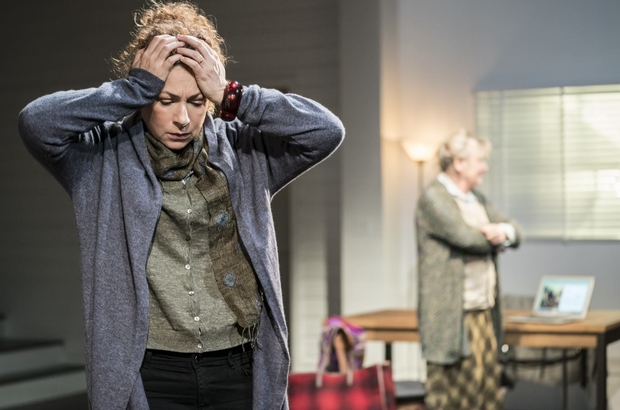ASYIA IFTIKHAR discusses positive discrimination
“When you’re accustomed to privilege, equality feels like oppression.” Clay Shirky
Recently I went to see ‘Admissions’ a theatre play that explores concepts of positive discrimination, diversity quotas and the ‘white saviour complex’, all a barrage of phrases created to support a new age of progress, tolerance and integration. I want to explore the impact of these modern initiatives to increase diversity on the psyche of minority groups and how they can be harmful as well as beneficial. The questions our society should be answering are:
Why is there a need for diversity quotas? Are they making positive or negative change? What are the contentious social issues that rise from it?
The play tells the story of a progressive white family who are navigating this new ‘diverse world’, whilst keenly supporting the expansion of diversity within the education system. In an excellently crafted social satire, we are told the struggles of the ‘white man’, through the thoughts and actions of the son who has been rejected from Yale, as opposed to his mixed race best friend, Perry.
This plot becomes the springboard for a discussion of the intricacies of positive discrimination and diversity quotas. From one perspective we see that the son feels cheated of a spot simply because he had no ‘special boxes’ to tick. He feels his whiteness was enough to discount him from the running since higher education is constantly working towards diversifying the sector. More importantly, he implied Perry had only got the place due to his ‘minority qualities’, since they both worked just as hard and achieved just as well. Although I suppose we were meant to feel sympathy for his plight I couldn’t help but think – Minority groups have to work twice as hard to be noticed, and when one white man does what he is meant to do and gets rejected, the world is meant to weep. My sentiments were shortly echoed by his father on stage.

However, the other perspective is a far more concerning picture. It is this opinion that perpetuates the idea that those of BAME and other discriminated backgrounds are not there of their own merit, but to fulfill the quota for the establishment. Despite railing against cultural stigma, discrimination and structural racism, the taste of unworthiness will always linger. From personal experience, as a Pakistani Muslim woman, there have been times when I have wondered whether my place in a room was because I have the skills they are looking for or I am simply someone to make them look good. Despite being hard workers and just as worthy as everyone else in that room, it is this ingrained culture that fuels imposter syndrome, underachieving and missed opportunity. Internally, and often externally, we go from ‘valued individual’ to ‘token minority’ despite being just as deserving of a spot in the room.
Another concept explored was the ‘white saviour complex’, a hot debate in the media recently, surrounding voluntourism, and ‘celebrity visits to Africa’. The parents in ‘Admissions’ are what I like to call ‘well meaning naive white people’, aka, the most difficult to morally negotiate. I have developed mechanisms to deal with racist and misogynistic individuals. Whilst, naturally, disheartening and sometimes horrific, their awful views mean I can easily discount them as an ally and look to other places to create strong support networks. On the other hand, white people who genuinely believe in creating an equal world and even work toward it, but just miss the mark or inadvertently make it worse, I cannot dismiss. To take an example from the play, when the mother is creating an admissions brochure, she reduces ethnic minorities to a percentage that needs to be achieved to encourage diversity. Their genuine good intentions means my anger at them is replaced by anger at our society for not having proper education to tackle these important social issues. In the play, it is the son who points out their hypocrisy, that they are willing to help and promote diversity until they actually have to ‘sacrifice’ anything.

Equality is a two way street. One way, those who have been systematically oppressed are given rights and opportunity; the other, where those who have, for centuries, benefitted from the system, allows seats on the table for us to sit. ‘Sacrifice’ is the word that is often bandied around, as though white people have martyred themselves for the cause of equality. We have found a way to praise humanity for giving basic rights and reasonable opportunity and make those who take advantage feel ‘less than’ and as though they are not deserving. This attitude which has rapidly manifested itself in every part of society is the greatest flaw in this new ‘progressive system’.
It is not sacrifice. It is basic equality.
Nothing will be done until, as a society, we believe that diversifying our sectors and increasing access to minority groups isn’t a favour that is being given for the sake of ‘equality’ but is something that is actively bettering our societies and communities and will propel us forward to the future. Greater representation in politics means more groups are represented in a diverse country and problems facing certain communities can be discussed and tackled appropriately. Greater representation in media not only brings new perspective, content and atmosphere to a static industry but also inspires more people to pursue a career in the arts. Greater representation in business creates new ideas and makes products accessible and relatable.
It is time to re educate ourselves on the meaning of diversity and why it is necessary, beyond fulfilling ‘a leftist agenda’. Countries, societies and communities thrive when we give opportunity and open doors to everyone, even if that means standing on the table and shouting to be heard.
feature image courtesy of Admissions Play





